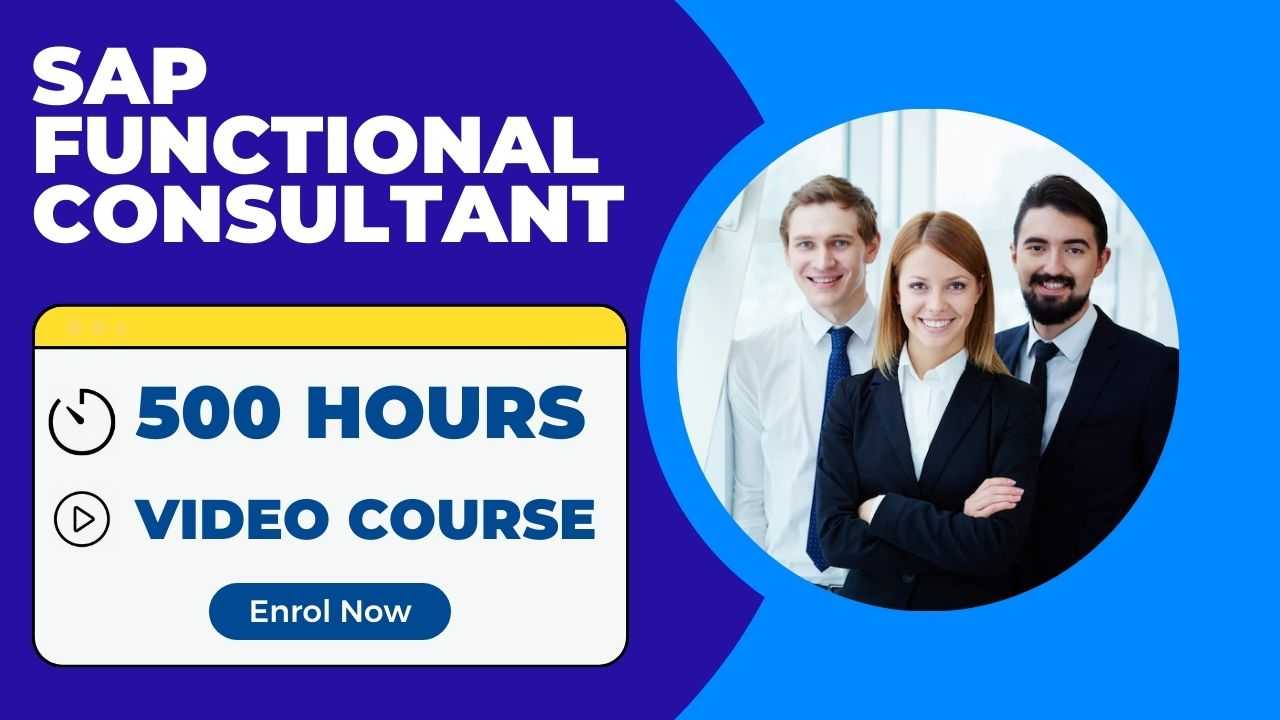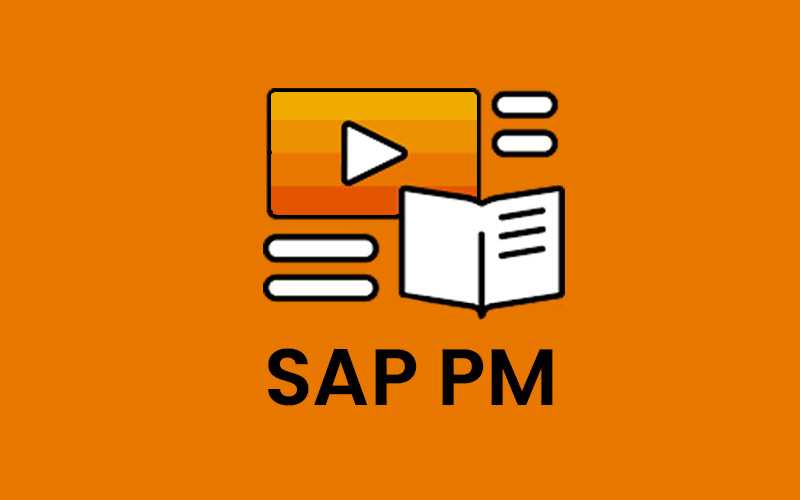SAP QM (basic to advanced)
Implement effective quality control & assurance processes with SAP QM. Explore inspection planning, notification management, supplier evaluation, more
Course Duration: 20 Hours
Preview SAP QM (basic to advanced) course
Price Match Guarantee Full Lifetime Access Access on any Device Technical Support Secure Checkout Course Completion Certificate 76% Started a new career
BUY THIS COURSE (GBP 29)
76% Started a new career
BUY THIS COURSE (GBP 29)
-
 82% Got a pay increase and promotion
82% Got a pay increase and promotion
New & Hot
Trending
Great Service
Google Drive access
Students also bought -
-

- Career Path - SAP Functional Consultant
- 500 Hours
- GBP 99
- 7893 Learners
-

- SAP PM (basic to advanced)
- 18 Hours
- GBP 29
- 402 Learners
-

- SAP PP (basic to advanced)
- 20 Hours
- GBP 29
- 3408 Learners

SAP QM, which stands for SAP Quality Management, is a module within the SAP ERP (Enterprise Resource Planning) system that facilitates various quality management processes in an organization. It is designed to help companies maintain and improve the quality of their products and processes throughout the entire supply chain.
Key features and functionalities of SAP QM include:
1. Quality Planning: SAP QM allows users to define quality plans, inspection plans, and inspection characteristics for different materials and processes. These plans help establish the quality requirements and criteria for products and operations.
2. Inspection Processing: The module enables the recording and processing of inspection results for both incoming materials and in-process production. It supports various inspection methods such as goods receipt inspection, in-process inspection, and final product inspection.
3. Quality Notifications: SAP QM provides a mechanism for recording and processing quality-related issues, complaints, or non-conformances. These quality notifications can trigger corrective and preventive actions to address the identified problems.
4. Quality Certificates: The module supports the creation and management of quality certificates for products, which are often required for compliance with specific industry standards or regulations.
5. Vendor and Supplier Evaluation: SAP QM allows organizations to assess and evaluate the performance of their suppliers and vendors based on quality-related criteria. This helps in making informed decisions about supplier selection and improvement.
6. Quality Control Charts: The module offers statistical process control (SPC) tools, such as control charts, to monitor process stability and identify any variations that might affect product quality.
7. Audit Management: SAP QM facilitates the management of internal and external quality audits, enabling companies to assess their adherence to quality standards and regulatory requirements.
8. Calibration Management: Organizations can manage the calibration of measurement equipment and instruments through SAP QM, ensuring accuracy and reliability in quality inspection processes.
9. Batch Management: For industries that deal with batch-managed materials (e.g., pharmaceuticals), SAP QM provides batch-specific quality management functionalities.
10. Integration with other SAP Modules: SAP QM is integrated with other SAP modules such as Materials Management (MM), Production Planning (PP), Sales and Distribution (SD), and Plant Maintenance (PM) to ensure seamless data flow and process integration.
SAP QM plays a critical role in helping businesses achieve operational excellence, maintain compliance with quality standards and regulations, reduce product defects, and enhance customer satisfaction by delivering products of higher quality.
Role of SQP QM Consultant includes the following responsibilities:
1. Business Process Analysis: Understanding the client's quality management processes, requirements, and challenges to recommend suitable SAP QM solutions.
2. System Implementation: Configuring the SAP QM module based on the client's specific needs, ensuring that it aligns with their quality management practices.
3. Integration: Collaborating with other SAP consultants to ensure seamless integration of SAP QM with other modules like MM, PP, SD, and PM for efficient data flow and process integration.
4. Customization: Customizing SAP QM functionalities and reports to cater to unique business needs and quality metrics.
5. Testing: Conducting thorough testing of the SAP QM module to validate its functionality, identify issues, and ensure smooth operations.
6. User Training: Training end-users and stakeholders on how to effectively use the SAP QM system to perform inspections, manage notifications, and analyze quality data.
7. Support and Maintenance: Providing ongoing support to resolve issues, troubleshoot problems, and perform regular system maintenance.
8. Continuous Improvement: Assisting the organization in continuously improving quality management processes through SAP QM by identifying areas for enhancement and implementing best practices.
9. Regulatory Compliance: Ensuring that the SAP QM system meets industry-specific quality standards and regulatory requirements.
10. Documentation: Creating comprehensive documentation, including functional specifications, user guides, and training materials.
This SAP QM (basic to advanced) course by Uplatz will equip you with SAP QM Consultant level skills and will help you to fully manage the SAP QM module in your organization.
Course/Topic 1 - Course access through Google Drive
-
Google Drive
-
Google Drive
Course Objectives Back to Top
1. Understanding SAP QM: Gain a comprehensive understanding of the SAP Quality Management module, its features, and its role in an SAP ERP system.
2. Quality Planning: Learn how to create quality plans, inspection plans, and inspection characteristics to define quality requirements for products and processes.
3. Inspection Processing: Acquire skills in performing various types of inspections, recording inspection results, and managing inspection lots efficiently.
4. Quality Notifications and Issues Management: Understand how to raise quality notifications, manage non-conformances, and initiate corrective actions to address quality-related issues.
5. Supplier Evaluation: Learn how to evaluate and assess suppliers based on quality criteria to ensure the procurement of high-quality materials.
6. Quality Certificates: Discover how to create and manage quality certificates to comply with industry standards and regulatory requirements.
7. Statistical Process Control (SPC): Familiarize yourself with SPC tools like control charts to monitor and analyze process variations for continuous improvement.
8. Audit Management: Gain knowledge of managing internal and external quality audits to ensure compliance with quality standards and regulations.
9. Calibration Management: Develop skills in handling the calibration of measuring instruments and equipment to maintain accuracy in quality inspections.
10. Integration with other SAP Modules: Learn how SAP QM integrates with other SAP modules (e.g., MM, PP, SD, PM) for seamless data flow and process integration.
11. Best Practices: Understand industry best practices in quality management and how to apply them using SAP QM.
12. Hands-on Practice: Get practical experience through hands-on exercises and real-world scenarios to reinforce the learning process.
13. Troubleshooting and Support: Learn how to troubleshoot common issues and provide support for SAP QM users.
14. Continuous Improvement: Discover how to identify areas for continuous improvement in quality management processes and implement enhancements using SAP QM functionalities.
Overall, the course aims to equip participants with the knowledge and skills necessary to effectively utilize SAP QM for quality control, assurance, compliance, and process optimization within their organization.
Course Syllabus Back to Top
SAP QM (basic to advanced) - Course Syllabus
1. Introduction to SAP QM: Overview of the SAP Quality Management module, its role in the SAP ERP system, and its significance in improving product quality.
1. Introduction to SAP QM: Overview of the SAP Quality Management module, its role in the SAP ERP system, and its significance in improving product quality.
2. Quality Planning: Understanding how to create quality plans, inspection plans, and inspection characteristics to define quality requirements.
3. Inspection Processing: Learning how to perform various types of inspections, record inspection results, and manage inspection lots.
4. Quality Notifications and Issues Management: Exploring the process of raising quality notifications, addressing non-conformances, and initiating corrective actions.
5. Supplier Evaluation: Understanding how to assess and evaluate suppliers based on quality criteria to ensure the procurement of high-quality materials.
6. Quality Certificates: Creating and managing quality certificates to comply with industry standards and regulatory requirements.
7. Statistical Process Control (SPC): Utilizing SPC tools like control charts to monitor and analyze process variations for continuous improvement.
8. Audit Management: Managing internal and external quality audits to ensure adherence to quality standards and regulations.
9. Calibration Management: Handling the calibration of measuring instruments and equipment to maintain accuracy in quality inspections.
10. Integration with other SAP Modules: Understanding the integration of SAP QM with other modules like MM, PP, SD, and PM for seamless data flow and process integration.
Certification Back to Top
Career & Jobs Back to Top
Interview Questions Back to Top
Course Quiz Back to Top
FAQs
Back to Top
Q1. What are the payment options?
A1. We have multiple payment options:
1) Book your course on our webiste by clicking on Buy this course button on top right of this course page
2) Pay via Invoice using any credit or debit card
3) Pay to our UK or India bank account
4) If your HR or employer is making the payment, then we can send them an invoice to pay.
Q2. Will I get certificate?
A2. Yes, you will receive course completion certificate from Uplatz confirming that you have completed this course with Uplatz. Once you complete your learning please submit this for to request for your certificate https://training.uplatz.com/certificate-request.php
Q3. How long is the course access?
A3. All our video courses comes with lifetime access. Once you purchase a video course with Uplatz you have lifetime access to the course i.e. forever. You can access your course any time via our website and/or mobile app and learn at your own convenience.
Q4. Are the videos downloadable?
A4. Video courses cannot be downloaded, but you have lifetime access to any video course you purchase on our website. You will be able to play the videos on our our website and mobile app.
Q5. Do you take exam? Do I need to pass exam? How to book exam?
A5. We do not take exam as part of the our training programs whether it is video course or live online class. These courses are professional courses and are offered to upskill and move on in the career ladder. However if there is an associated exam to the subject you are learning with us then you need to contact the relevant examination authority for booking your exam.
Q6. Can I get study material with the course?
A6. The study material might or might not be available for this course. Please note that though we strive to provide you the best materials but we cannot guarantee the exact study material that is mentioned anywhere within the lecture videos. Please submit study material request using the form https://training.uplatz.com/study-material-request.php
Q7. What is your refund policy?
A7. Please refer to our Refund policy mentioned on our website, here is the link to Uplatz refund policy https://training.uplatz.com/refund-and-cancellation-policy.php
Q8. Do you provide any discounts?
A8. We run promotions and discounts from time to time, we suggest you to register on our website so you can receive our emails related to promotions and offers.
Q9. What are overview courses?
A9. Overview courses are 1-2 hours short to help you decide if you want to go for the full course on that particular subject. Uplatz overview courses are either free or minimally charged such as GBP 1 / USD 2 / EUR 2 / INR 100
Q10. What are individual courses?
A10. Individual courses are simply our video courses available on Uplatz website and app across more than 300 technologies. Each course varies in duration from 5 hours uptop 150 hours.
Check all our courses here https://training.uplatz.com/online-it-courses.php?search=individual
Q11. What are bundle courses?
A11. Bundle courses offered by Uplatz are combo of 2 or more video courses. We have Bundle up the similar technologies together in Bundles so offer you better value in pricing and give you an enhaced learning experience.
Check all Bundle courses here https://training.uplatz.com/online-it-courses.php?search=bundle
Q12. What are Career Path programs?
A12. Career Path programs are our comprehensive learning package of video course. These are combined in a way by keeping in mind the career you would like to aim after doing career path program. Career path programs ranges from 100 hours to 600 hours and covers wide variety of courses for you to become an expert on those technologies.
Check all Career Path Programs here https://training.uplatz.com/online-it-courses.php?career_path_courses=done
Q13. What are Learning Path programs?
A13. Learning Path programs are dedicated courses designed by SAP professionals to start and enhance their career in an SAP domain. It covers from basic to advance level of all courses across each business function. These programs are available across SAP finance, SAP Logistics, SAP HR, SAP succcessfactors, SAP Technical, SAP Sales, SAP S/4HANA and many more
Check all Learning path here https://training.uplatz.com/online-it-courses.php?learning_path_courses=done
Q14. What are Premium Career tracks?
A14. Premium Career tracks are programs consisting of video courses that lead to skills required by C-suite executives such as CEO, CTO, CFO, and so on. These programs will help you gain knowledge and acumen to become a senior management executive.
Q15. How unlimited subscription works?
A15. Uplatz offers 2 types of unlimited subscription, Monthly and Yearly.
Our monthly subscription give you unlimited access to our more than 300 video courses with 6000 hours of learning content. The plan renews each month. Minimum committment is for 1 year, you can cancel anytime after 1 year of enrolment.
Our yearly subscription gives you unlimited access to our more than 300 video courses with 6000 hours of learning content. The plan renews every year. Minimum committment is for 1 year, you can cancel the plan anytime after 1 year.
Check our monthly and yearly subscription here https://training.uplatz.com/online-it-courses.php?search=subscription
Q16. Do you provide software access with video course?
A16. Software access can be purchased seperately at an additional cost. The cost varies from course to course but is generally in between GBP 20 to GBP 40 per month.
Q17. Does your course guarantee a job?
A17. Our course is designed to provide you with a solid foundation in the subject and equip you with valuable skills. While the course is a significant step toward your career goals, its important to note that the job market can vary, and some positions might require additional certifications or experience.
Remember that the job landscape is constantly evolving. We encourage you to continue learning and stay updated on industry trends even after completing the course. Many successful professionals combine formal education with ongoing self-improvement to excel in their careers. We are here to support you in your journey!
Q18. Do you provide placement services?
A18. While our course is designed to provide you with a comprehensive understanding of the subject, we currently do not offer placement services as part of the course package. Our main focus is on delivering high-quality education and equipping you with essential skills in this field.
However, we understand that finding job opportunities is a crucial aspect of your career journey. We recommend exploring various avenues to enhance your job search:
a) Career Counseling: Seek guidance from career counselors who can provide personalized advice and help you tailor your job search strategy.
b) Networking: Attend industry events, workshops, and conferences to build connections with professionals in your field. Networking can often lead to job referrals and valuable insights.
c) Online Professional Network: Leverage platforms like LinkedIn, a reputable online professional network, to explore job opportunities that resonate with your skills and interests.
d) Online Job Platforms: Investigate prominent online job platforms in your region and submit applications for suitable positions considering both your prior experience and the newly acquired knowledge. e.g in UK the major job platforms are Reed, Indeed, CV library, Total Jobs, Linkedin.
While we may not offer placement services, we are here to support you in other ways. If you have any questions about the industry, job search strategies, or interview preparation, please dont hesitate to reach out. Remember that taking an active role in your job search process can lead to valuable experiences and opportunities.
Q19. How do I enrol in Uplatz video courses?
A19. To enroll, click on "Buy This Course," You will see this option at the top of the page.
a) Choose your payment method.
b) Stripe for any Credit or debit card from anywhere in the world.
c) PayPal for payments via PayPal account.
d) Choose PayUmoney if you are based in India.
e) Start learning: After payment, your course will be added to your profile in the student dashboard under "Video Courses".
Q20. How do I access my course after payment?
A20. Once you have made the payment on our website, you can access your course by clicking on the "My Courses" option in the main menu or by navigating to your profile, then the student dashboard, and finally selecting "Video Courses".
Q21. Can I get help from a tutor if I have doubts while learning from a video course?
A21. Tutor support is not available for our video course. If you believe you require assistance from a tutor, we recommend considering our live class option. Please contact our team for the most up-to-date availability. The pricing for live classes typically begins at USD 999 and may vary.









